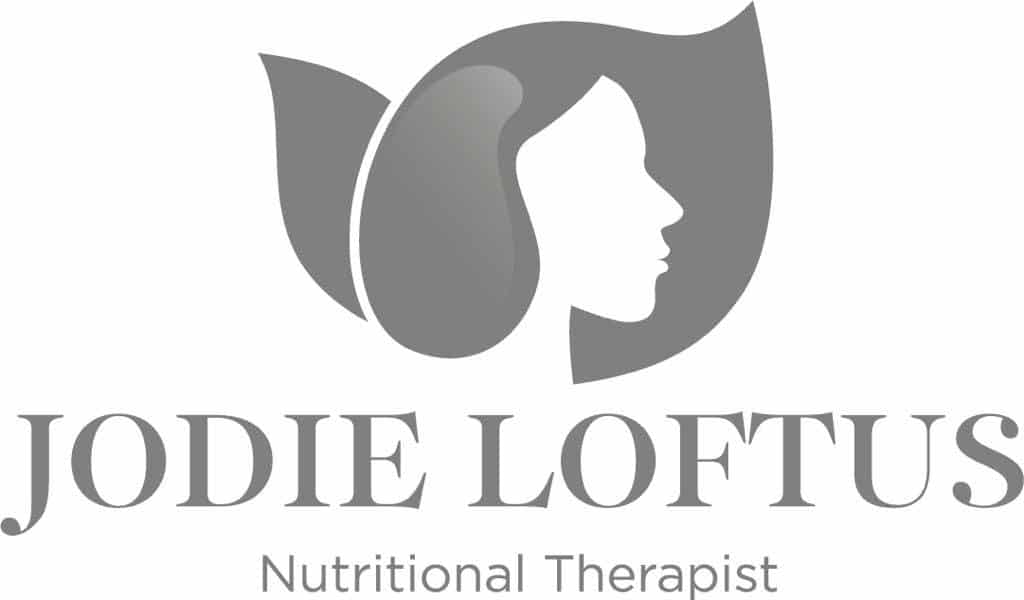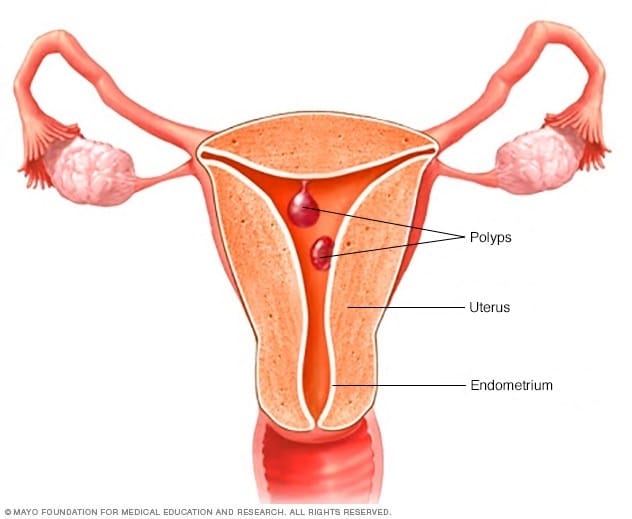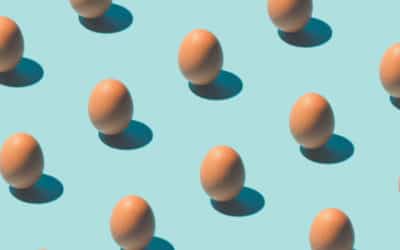Uterine polyps (also known as endometrial polyps) are growths attached to the inner wall of the uterus. They are often caused by an overgrowth of cells in the lining of the uterus (endometrium) and range in size from a few millimetres (no larger than a sesame seed) to several centimetres (the size of a golf ball or larger).
While they mainly affect menopausal women, they are becoming increasingly common in younger clients in their twenties and thirties. Whether they can be managed conservatively or require surgical removal usually depends on the size of the polyps. However, there are certain nutrition and lifestyle changes that can help in management of this condition.
If you have uterine polyps you are probably experiencing the classic symptoms of heavy and/or painful periods. But you are probably wondering how these uterine polyps came about in the first place?
Possible causes of uterine polyps
- High oestrogen
- Low progesterone
- Stress
- Toxic load
- Inflammation
- Overweight or obese
- High blood pressure
- Menopause
- Lack of circulation to reproductive organs
Assess your hormones
High oestrogen is a known contributor to abnormal growth of hormone sensitive tissue like in the uterus and is a key driver of uterine polyps. Oestrogen dominance can be exacerbated by low progesterone, which can be caused by stress, or low thyroid function. In clinic I regularly use the DUTCH test and almost always a full thyroid panel for a thorough investigation. Do you know that you are ovulating? This is key as ovulation can help keep these hormones in check.
Manage your stress
Getting a handle on your stress levels can help to increase the production of progesterone, which will balance your levels of oestrogen to progesterone. Meditation is a great way to incorporate some downtime into your day, even 10 minutes daily has been shown to make a difference. Try the Calm app, they offer a free trial and have a great daily 10-minute guided meditation. This will encourage activation of your parasympathetic nervous system (think rest and digest mode) and reduce activation of your sympathetic nervous system (think fight or flight mode). Not into meditation? Make sure to spend time each day doing something you enjoy, even just for 10 minutes. This could be reading a book, going for a walk, watching your favourite TV show, having a bath, or cooking.
Reduce your toxic exposure
Reduce your use of endocrine disrupting chemicals in the home. Switch plastic Tupperware, plastic wrap and aluminium foil for glass containers and beeswax wrap. Swap conventional skincare and cosmetics for products free from parabens, SLS, phthalates and synthetic fragrance. Ditch chemical laden cleaning products for more natural brands like Method and Ecover. Ditch plastic bottled water for filtered water or glass bottled water.
Lower your inflammation
Chronic inflammation can cause abnormal tissue growth, like uterine polyps. There are many factors that cause inflammation including inflammatory foods like sugar, gut dysbiosis, and lack of exercise. I always recommend a Mediterranean diet which has been shown to have an anti-inflammatory effect (and has the added bonus of helping to balance blood sugar levels). Focus on lean meat, fish, plenty of monounsaturated fats like avocado, extra virgin olive oil, nuts and seeds, lots of fresh vegetables and fruit (aim for 10 portions a day) and whole grains.
Get moving
Daily movement is so important in increasing circulation in the reproductive organs, weight managements and eliminating waste products from the body (think sweating and bowel movements). This doesn’t have to be anything too strenuous; a gentle daily walk is enough to improve circulation. I advise clients to exercise in line with their cycle, opting for strength training like barre and Pilates in the first half of their cycle (follicular phase), opting for more intensity around the time of ovulation, i.e., HIIT (if you’re into that kind of thing), then slowing things down with yoga during the second half of the cycle (luteal phase).
Acupuncture
Another key way to improve circulation is acupuncture. This has the added benefit of assisting with hormonal balance and is something I always encourage in clients with endometrial growths, as well as fertility issues in general. Get in touch if you would like a referral.
Medical intervention
While nutrition and lifestyle changes can make a big positive impact on uterine polyps, they still need to be assessed by your medical team as they can easily return or grow and may require surgical intervention.





